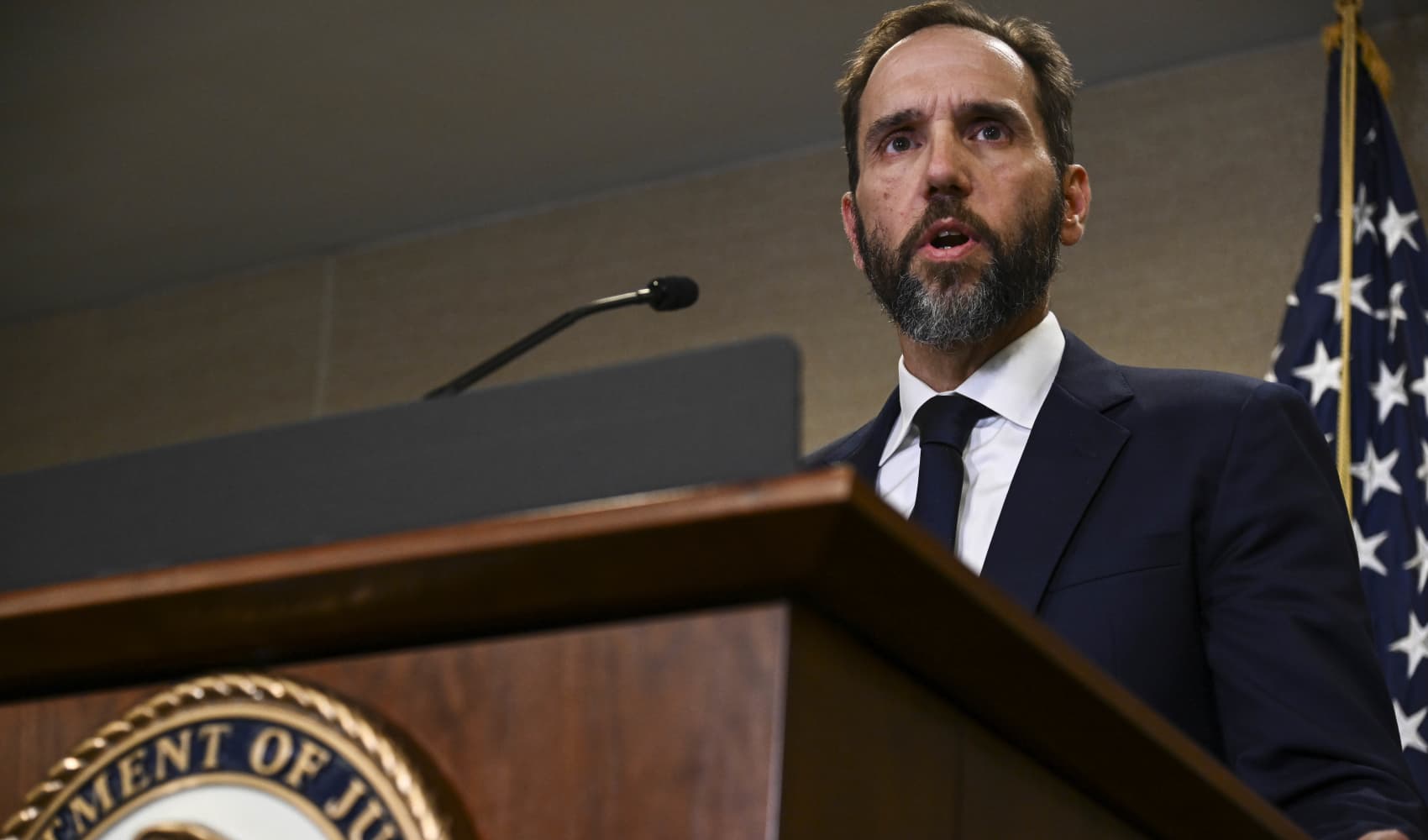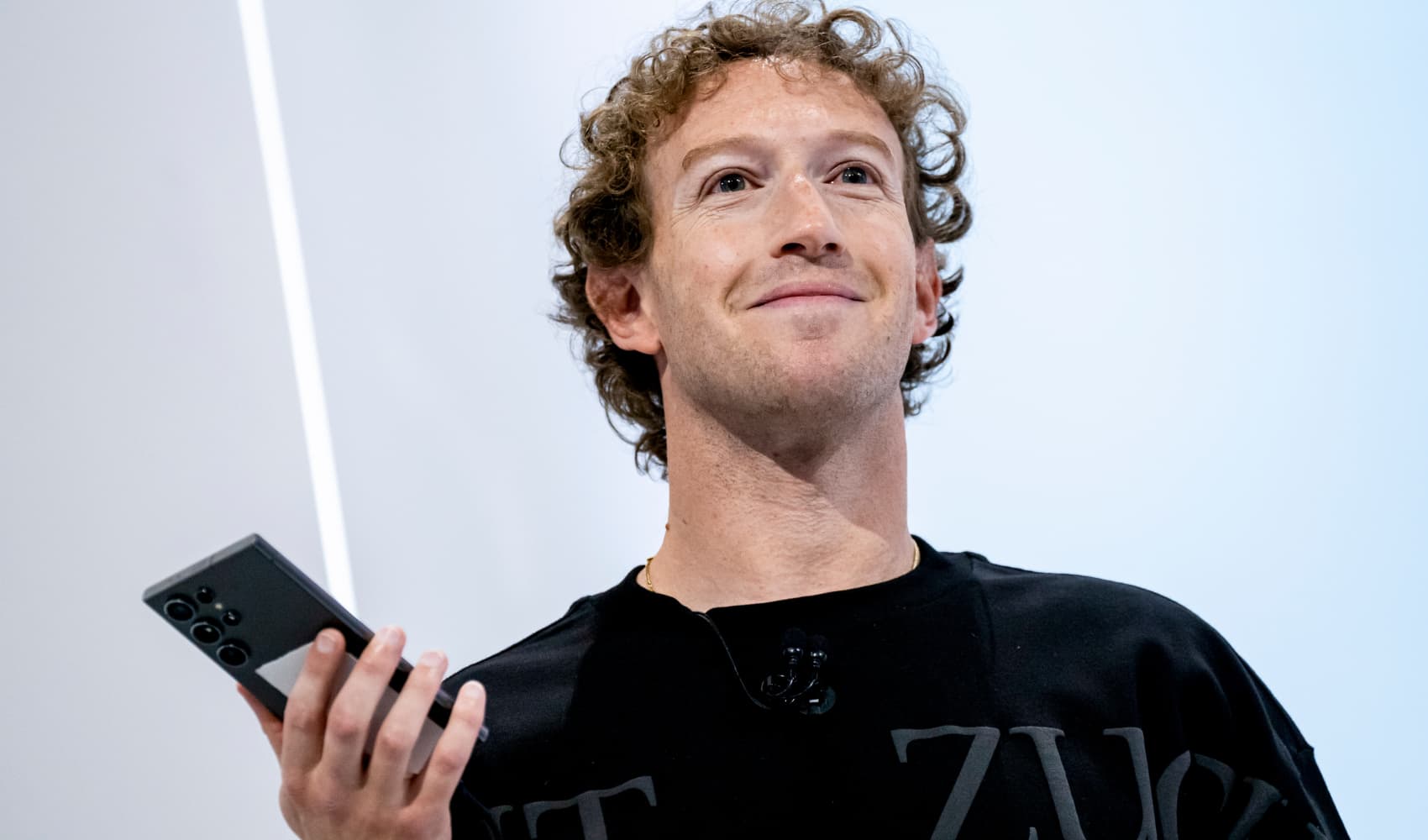
An app-based delivery worker waits outside of a restaurant in New York City on July 7, 2023.
- Grubhub will pay $25 million to settle a lawsuit over allegedly unlawful practices that harmed diners, workers and small businesses, the FTC announced on Tuesday.
- The complaint claims that Grubhub deceived diners about delivery costs and blocked their access to their accounts.
- Rising prices among third-party food delivery services has continued to frustrate Americans looking to reduce extra fees
Grubhub will pay $25 million to settle a lawsuit from the Federal Trade Commission and Illinois Attorney General Kwame Raoul over allegedly unlawful practices that harmed diners, workers and small businesses, the FTC announced on Tuesday.
The complaint claims that Grubhub deceived diners about delivery costs and blocked their access to their accounts. The company also deceived workers about how much money they would make delivering food and listed restaurants on its platform without their permission.
"Our investigation found that Grubhub tricked its customers, deceived its drivers, and unfairly damaged the reputation and revenues of restaurants that did not partner with Grubhub — all in order to drive scale and accelerate growth," FTC Chair Lina Khan said in a press release.
Get top local stories in DFW delivered to you every morning. Sign up for NBC DFW's News Headlines newsletter.
Grubhub has had as many as 325,000 unaffiliated restaurants on its platform — more than half of all of the available restaurants on Grubhub, according to the complaint. The company allegedly listed unaffiliated restaurants in order to drive growth, but diners often had to pay more in delivery fees from those restaurants which, in turn, damaged their reputations.
The complaint further alleged that Grubhub would often avoid removing unaffiliated restaurants off the platform when requested, instead trying to sell them paid partnerships.
As part of the settlement, the food delivery company will stop adding surprise fees that are often labeled as "service fees" or "small order fees," stop listing unaffiliated restaurants on the platform, be more transparent about driver earnings, notify customers if their account has been blocked, and provide more simple methods to cancel memberships.
Money Report
Rising prices among third-party food delivery services have continued to frustrate Americans looking to reduce extra fees. Between 2022 and 2024, consumers reported higher yearly increases in their total checks on third-party apps compared to orders made directly through restaurant sites, according to Technomic.
The FTC complaint alleged that Grubhub would add on junk fees to delivery costs, often labeled as "service fees" or "small order fees," despite having advertised that diners would pay a single, low-cost amount for Grubhub's services tied to deliveries.
"At Grubhub, we're committed to transparency so that every single day diners, restaurants and drivers can make well-informed choices to do business with us," a Grubhub spokesperson wrote in a statement to CNBC. "While we categorically deny the allegations made by the FTC, many of which are wrong, misleading or no longer applicable to our business, we believe settling this matter is in the best interest of Grubhub and allows us to move forward."
The settlement includes a monetary judgment of $140 million, but is partially suspended as Grubhub is unable to pay the full amount, according to the press release. The company will instead pay $25 million, nearly all of which will be used to refund consumers harmed by the company's conduct. If Grubhub is found to have misrepresented its financial status, the full judgment would become immediately due, according to the press release.
"We believe the FTC agreed to suspend a portion of the judgment because we negotiated with them in good faith and provided extensive details about our business and financial performance," the Grubhub spokesperson said. "Monetary judgments are not intended to cause irreparable harm or undue hardship for companies."






